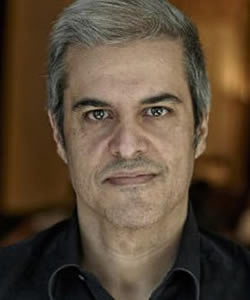New Research Program Explores Intersection of Identity, Democracy, and Justice
In an era marked by profound societal transformations, identity, democracy, and justice have become central to the discourse on shaping fair and inclusive societies. Recognizing the imperative to delve into these complex issues, political scientist Hakeem Jefferson is launching a new research initiative at Stanford University’s Center on Democracy, Development and the Rule of Law. The Program on Identity, Democracy, and Justice (IDJ) serves as a nexus for researchers committed to unraveling the multifaceted dimensions of identity and informing tangible steps toward a more equitable future.
Against the backdrop of diverse topics such as racial and ethnic identity, gender and sexuality, religion, class, and citizenship, the IDJ program emerges as a hub for interdisciplinary collaboration. Its reach extends beyond academic circles, bringing together researchers and organizations who are thinking about how to build fairer, more inclusive societies.
“Hakeem's work on race and politics in America is an important part of the Center's expanding work on the quality of American democracy,” shared Kathryn Stoner, Mosbacher Director of CDDRL. “We are thrilled to launch this new program on such a crucial issue at CDDRL.”
"This program is the embodiment of years of hard work by Hakeem Jefferson in building an innovative research agenda and a vibrant scholarly community attentive to pressing questions on struggles for recognition, inclusion, and social justice,” added Hesham Sallam, the Center’s Associate Director for Research. “I look forward to seeing the program flourish and grow while contributing to intellectual life at CDDRL and Stanford at large."
On January 11, 2024, IDJ will host its inaugural event, titled Multiracial Democracy and its Future in the United States, with Harvard University professors Steven Levitsky and Daniel Ziblatt. Levitsky and Ziblatt are the New York Times best-selling authors of How Democracies Die and will discuss their newest book, Tyranny of the Minority: Why American Democracy Reached the Breaking Point (Crown, 2023). In a moderated conversation with Professors Hakeem Jefferson and Jake Grumbach (UC Berkeley) and an audience Q&A, Levitsky and Ziblatt will offer a framework for understanding the current crisis in America's democracy. You can learn more about the event and register to attend here.
In the following Q&A, Hakeem Jefferson, an assistant professor of political science in the School of Humanities and Sciences, shares more about the motivations and objectives of the new IDJ program and the transformative potential of identity-focused research.
What motivated the establishment of the Program on Identity, Democracy, and Justice (IDJ) at CDDRL, and what specific gaps or challenges in existing research does it aim to address?
As a scholar of race and politics, it has always been clear to me that we cannot understand threats to democracy or the promise of democracy without engaging issues of race and identity more broadly. I am excited to launch this program at CDDRL because I think we have a real opportunity to bring together scholars, practitioners, and community members concerned with creating a society of political and social equals. At IDJ, we hope to expand people’s understanding of what it means to care about democracy and what the study of democracy looks like. For us, these questions necessitate a focus on difference, a focus on inequality, and a concern with democracy beyond the ballot box. To be sure, we will engage questions related to elections and the health of electoral democracy, but we also want to make the strong case in the research we platform and in the conversations and workshops we convene that being concerned with democracy means thinking quite carefully about how societies are stratified, how power is distributed, and how justice is achieved.
What are some of the program's key goals and objectives?
I want to invite folks who study the program themes to be in community with one another. The hope is that these interactions will lead to more thoughtful scholarship and initiatives. We want people to share early-stage ideas, make connections with like-minded collaborators, sharpen later-stage research, and broaden their aims and interests through consuming the work hosted by the program. We want to keep researchers aware of practitioners, especially at the local level, who are working to promote democratic principles and, in parallel, keep those organizations abreast of findings relevant to our shared interest in a healthier democracy.
How does the IDJ program approach the study of identity-related issues, and what makes it distinctive compared to existing research programs?
IDJ is ideas first. Different backgrounds, training, and scholarly dispositions mean that we think about identity-related questions in different ways. IDJ seeks to bring our attention to how we are engaging the same objective — equitable democracies — whether we are concerned with different identities, different contexts, or different sorts of evidence. By pursuing common insights, IDJ aims to produce work that is interesting to a broad audience.
As the IDJ program unfolds, how do you envision its role in shaping public discourse and influencing policies related to identity, democracy, and justice, both locally and globally?
Throughout my career — and since I was a young boy in South Carolina — I have engaged in public conversations about issues of justice. In recent years, I have written extensively for public audiences about topics ranging from the January 6 insurrection and whiteness to the crisis facing multiracial democracy in the United States. As I launch the IDJ program, this commitment to public engagement remains at the heart of what we plan to do. From writing Op-Eds to engaging directly with those working on the ground to safeguard democracy, we hope to be a public-facing program whose stakeholders include those far beyond our Stanford community.
Read More

Led by Professor Hakeem Jefferson, the program housed at the Center on Democracy, Development and the Rule of Law will advance innovative research on the multifaceted dimensions of identity and their role in democratic development, struggles for recognition, social justice, and inclusion.

















